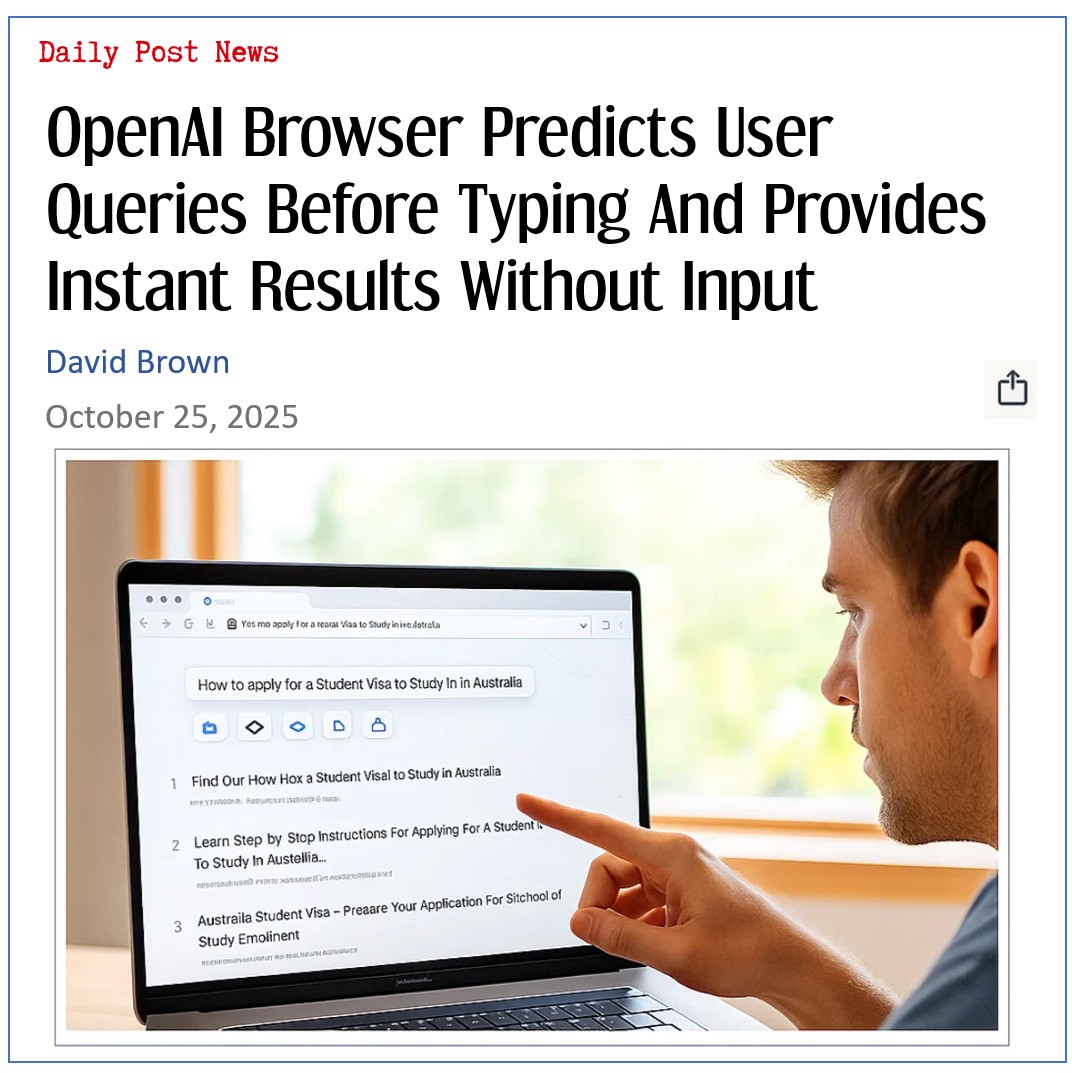SAN FRANCISCO – OpenAI has announced the launch of its new Atlas Browser, a next-generation tool that predicts what users want to search before they even start typing. The browser analyzes thought patterns and browsing habits, delivering instant answers without user input.
According to OpenAI’s press release, Atlas uses the company’s latest NeuroPredict™ engine, developed in partnership with the Stanford Human-Computer Interaction Lab. The engine identifies micro-delays between intent and action, turning hesitation into data.
Unlike traditional browsers, Atlas eliminates the search bar entirely. Instead, it presents results based on what users are likely to think about next. Early testers say the experience feels “peacefully intrusive.”
OpenAI CEO Sam Altman described the product as “a natural step forward in user efficiency.” He added that the browser helps people “save time by skipping the act of thinking out loud.”
The browser runs on Microsoft Azure’s infrastructure, ensuring global scalability and compliance with privacy laws. According to OpenAI engineers, no explicit thoughts are stored—only “implied curiosity metrics.”
Critics have raised mild concerns about mental privacy, but OpenAI says it’s all under control. The company’s new Transparency Dashboard (https://openai.com/transparency) allows users to see which thoughts were interpreted.
Atlas also connects directly to ChatGPT, which summarizes predicted topics before users realize they wanted to know them. For example, a person glancing at a coffee mug may instantly receive the global price of arabica beans.



